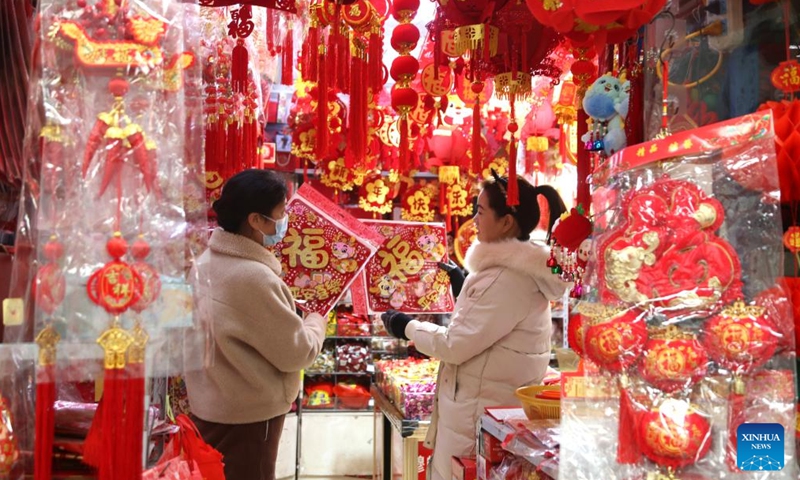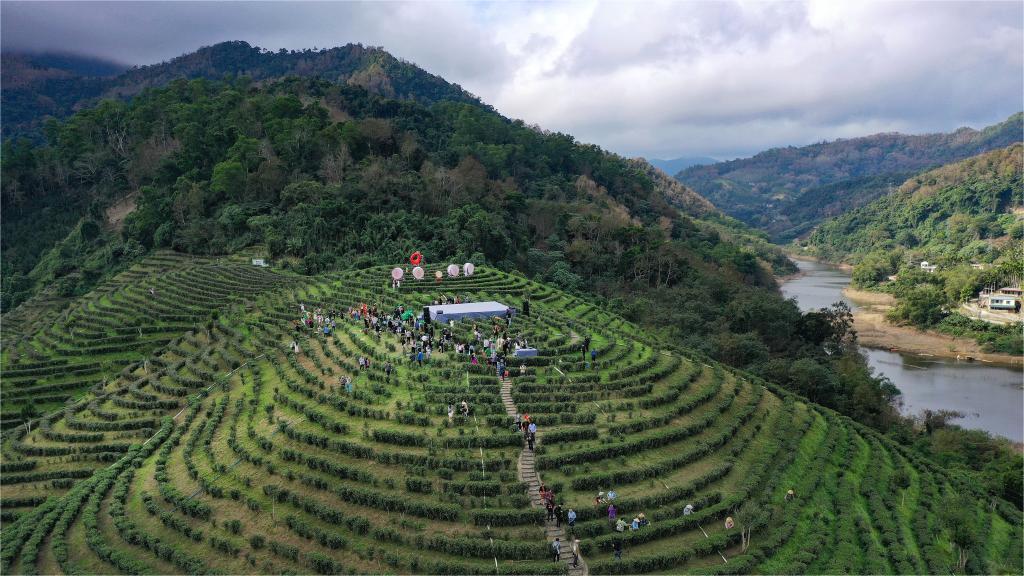China predicted to experience mild spike in COVID-19 cases around the Spring Festival

People select decortations for Spring Festival at market in Lianyungang, east China's Jiangsu Province, Jan. 13, 2024. China's 2024 Spring Festival holiday will run from Feb. 10 to 17. (Photo by Wang Chun/Xinhua)
Given the expected large floating population during the upcoming Spring Festival holidays and other factors, it's predicted that there will be a likely rise in COVID-19 infections around the holiday season, with several respiratory infectious diseases likely to coexist or alternate in prevalence in various regions across the country, Lei Zhenglong, an official from the National Disease Control and Prevention Administration, said at a Tuesday press briefing.
Since the beginning of winter in 2023, China has witnessed multiple pathogens co-circulating and alternating peaks in acute respiratory infectious diseases. The influenza epidemic is experiencing significant fluctuations, while the COVID-19 remains at a low level, with the predominant strains being as XBB and its sublineages. However, the country has seen increasing infections with the JN.1 strain, Lei said.
Lu Hongzhou, head of the Third People's Hospital of Shenzhen, told the Global Times on Tuesday that "although the immune escape ability of JN.1 has increased, there is no evidence to suggest an increase in its pathogenicity."
Most residents have experienced two or even three COVID-19 infections since December 2022. Research data has shown that the infection experiences can lead individuals to produce neutralizing antibodies against Omicron variants, according to Lu. The country's existing experience and medical resources are sufficient to cope with this situation if there is a small rise in JN.1 infections, Lu said.
Authorities have implemented measures to ensure the stability of the epidemic situation during the holidays, including strengthening the prevention and control measures at ports, enhancing epidemic monitoring and early warning, according to Lei.
Officials are required to provide health services and management for key populations such as the elderly and patients with chronic underlying diseases, promoting the COVID-19 and influenza vaccines.
Lu said that it's still necessary to use COVID-19 vaccines to better protect individuals against serious infection.
Authorities will also improve emergency response mechanisms, lift capabilities to ensure timely and effective handling of clustered epidemic outbreaks, Lei noted.
Targeted allocation of medical resources is also needed during the holidays, including increasing the medical resources of key departments such as outpatient, pediatrics, respiratory, and intensive care in medical institutions, while also increasing market supply and reserve of common drugs such as cold, fever, and cough medicines, Lei noted.
Photos
Related Stories
- Respiratory diseases show declining trend, with COVID-19 at lowest level of 2023: China CDC
- COVID-19 vaccine uptake lower than expected: U.S. CDC
- China guards against new variant of COVID-19
- Sinovac reportedly halts COVID-19 vaccine production
- WHO warns of persistent threats from COVID-19
- New COVID variant JN.1 makes nearly half latest infections in U.S.
Copyright © 2024 People's Daily Online. All Rights Reserved.









